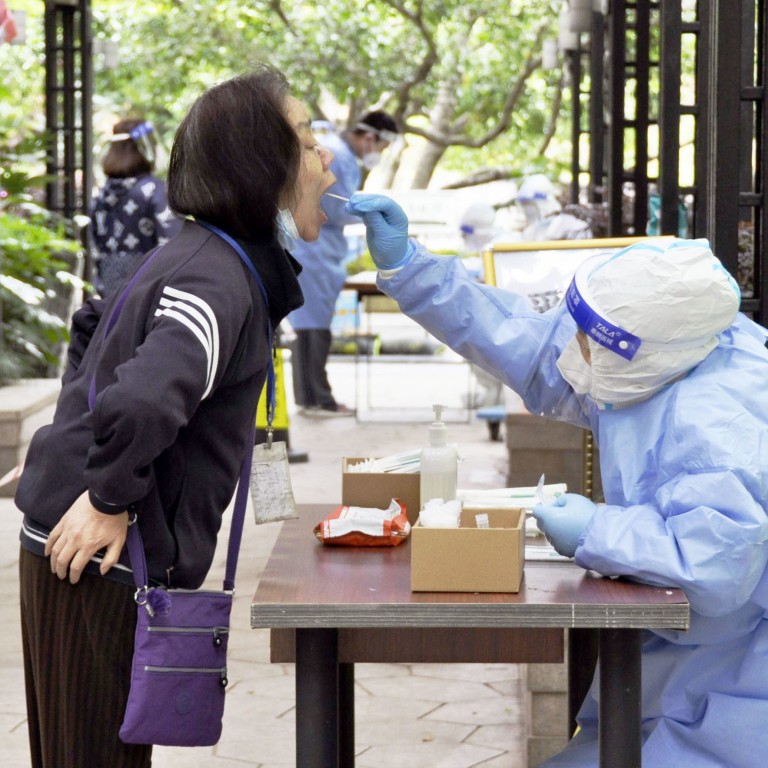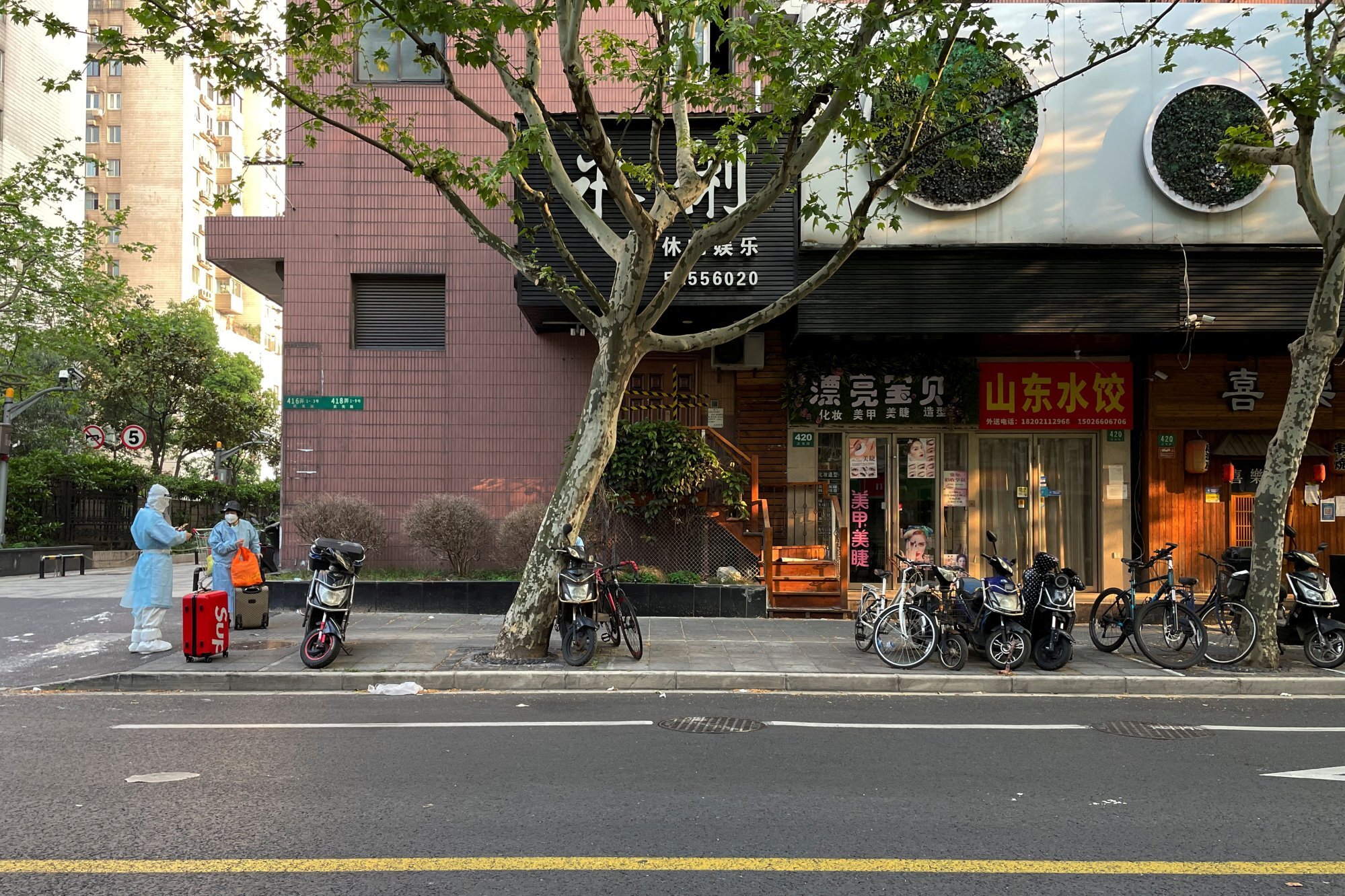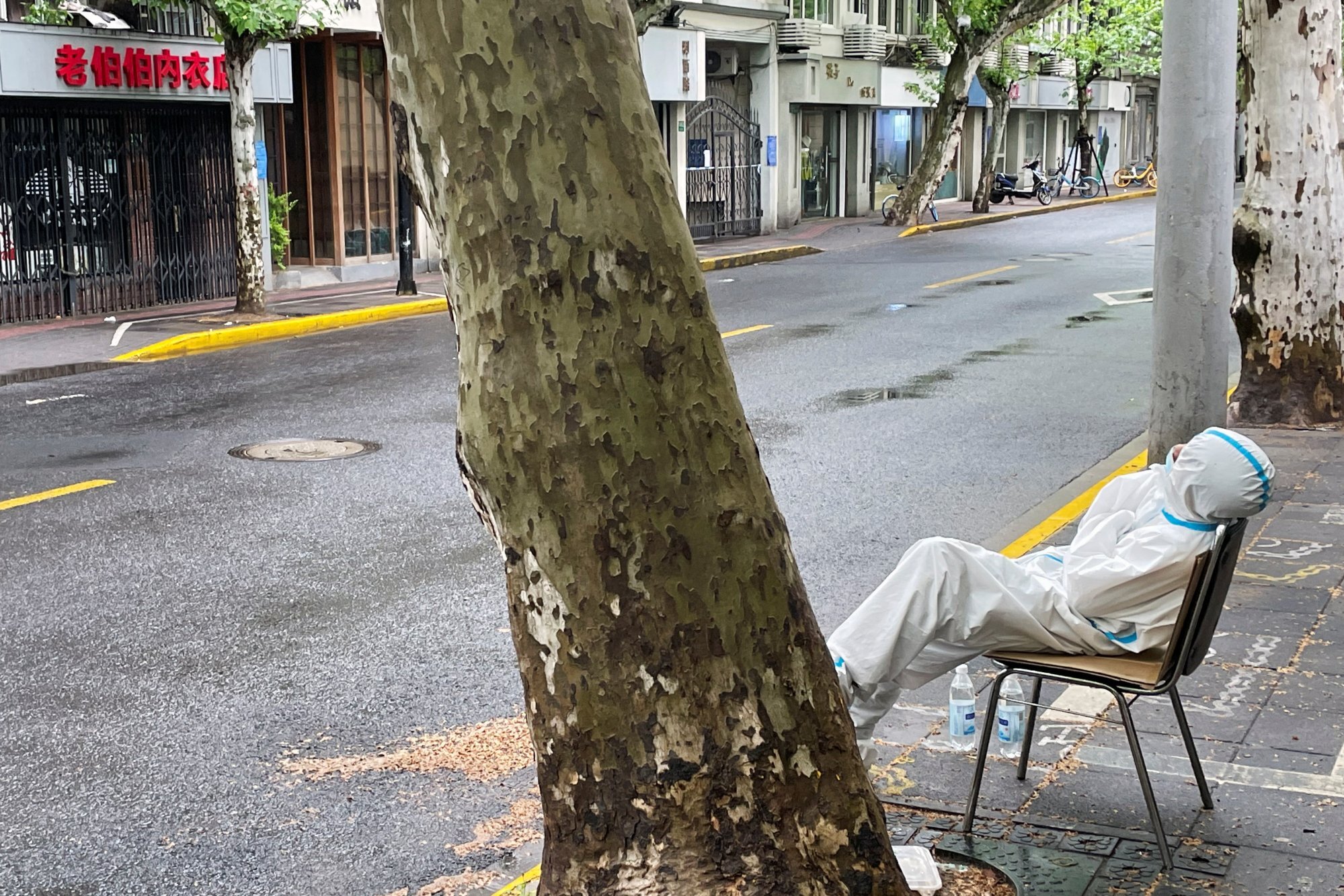
Coronavirus: Shanghai’s new cases rebound after five-day decline, with no end in sight for lockdown
- A total of 23,370 new infections were recorded in the previous 24 hours, up 32.6 per cent from a day earlier
- Symptomatic cases rose 41.7 per cent to 2,736, while 11 patients died, bringing the death toll to 48
Shanghai reported on Saturday a sharp rebound in the daily numbers of new Covid-19 cases, ending a five-day declining streak and dashing hopes of an imminent end to the citywide lockdown that started on April 1.
A total of 23,370 new infections were recorded in the previous 24 hours, up 32.6 per cent from a day earlier, according to government data, taking the city’s cumulative cases since March 1 to about 466,000. Symptomatic cases rose 41.7 per cent to 2,736, while 11 patients died, bringing the death toll to 48.
Severe cases stood at 157, down slightly from the 160 reported on Friday, with 17 of those patients in critical condition, compared to 24 the day before, said Wu Qianyu, a senior official with the local health commission, during a press briefing on Saturday.
The surge in infections quelled speculation by some citizens that public health restrictions would be lifted soon.

“Controls on residential complexes should be strengthened to preserve the achievements that were made earlier,” Mayor Gong Zheng told officials during an inspection tour at central Shanghai’s Jingan district on Friday, according to a government statement. “We must try to avoid a rebound in new cases,” he said.
Infections were spreading in what officials had considered low-risk areas – those that had not recorded any cases in 14 days – as medical officers and volunteers travelled around unguarded compounds.
The standstill order – part of a series of strengthened coronavirus prevention and control measures known as “static management” – curbs the movements of these personnels, as well as health officials and delivery couriers in those areas.
A total of 218 cases were detected at the unguarded zones on Friday, down from 250 a day earlier.
“A drop in the number of infections at the unguarded zones is a positive sign that a societal zero-Covid goal could possibly be reached in the near future,” said Zhang Chaoyue, an analyst with Northeast Securities. “After all, infections at the unguarded zones account for less than 1 per cent of the total new cases, showing that the antivirus control measures have been taking effect.”
Still, the highly transmissible Omicron variant is “hard to beat”, said Meng Tianying, a senior executive at Shanghai-based consultancy Domo Medical.
“Several days of sustained static management can technically bring down the infection numbers [at the unguarded zones],” said Meng. “But it remains to be seen whether new cases will trickle down to zero.”
Two local officials said the Shanghai government wants to achieve societal zero-Covid at the end of this month before looking into plans to lift the citywide lockdown.
Shanghai announced on Saturday that its economy expanded 3.1 per cent in the first three months of the year. The local government had set a target for a 5.5 per cent increase in economic output for 2022, but analysts said the city is certain to miss the goal because of the lockdown.
The financial and commercial hub of Pudong, east of Huangpu River, has been sealed off since March 28.
“April is the month when Shanghai is hard hit by the lockdown measures arising from the virus control,” Huatai Securities said in a research report on Thursday. “The city will bear the cost of lockdowns and suspension in business activities in the second quarter of this year.”

Those companies include major carmakers in the city, such as Tesla, as well as SAIC Motor and its ventures with Volkswagen and General Motors, according to Wu Jincheng, director of the local commission of economy and information technology.
Manufacturers are required to operate in “closed-loop” management, where workers essentially live on-site to avoid contact with outsiders.
Vice-Mayor Zhang Wei said on Friday that the city government has been making tremendous efforts to restore logistics links to support the resumption of manufacturing activities.


